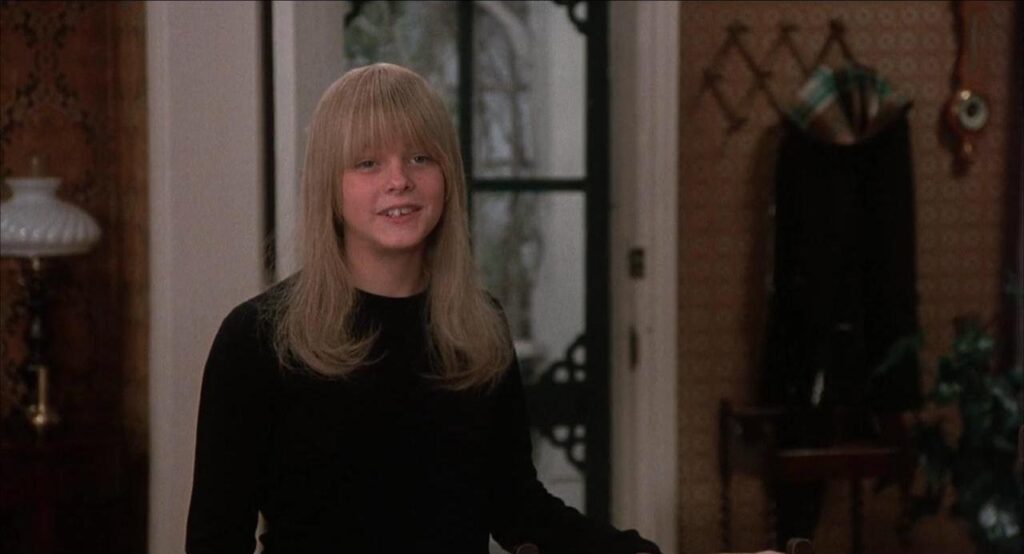
Rynn (Jodie Foster), an orphan, lives alone, carrying on the charade that her late poet father is still alive. On her thirteenth birthday (which also happens to be Halloween night), Rynn is intruded upon by Mr. Hallet (Martin Sheen) whose advances become constant from then on. With the help of Mario (Scott Jacoby), Rynn is able to preserve her autonomy, even if she has to resort to murder.
The Little Girl Who Lives Down The Lane (1976) is a macabre little drama. The film’s director, Nicolas Gessner, exploits the claustrophobic atmosphere of the dominant location so that the audience feels as trapped and helpless as Rynn. Gessner is a more than competent filmmaker but he never manages to bring a unique visual style to the picture. Its workman-like craftsmanship and saccharine score give The Little Girl Who Lives Down The Lane the same qualities as an old after school special.
Foster, however, is at her best. Foster is ever equal parts vulnerable and calculating in a tour de force performance as a character that could have so easily been played as a perpetual victim. Foster is so powerful that the final image of the film is a close-up of her as she coldly observes the poison working on Martin Sheen. In this final moment all that matters is Jodie Foster’s face. Her expression conveying anger, relief, joy, hatred, anxiety, and innocence all at once as she triumphs over the villain.
The pedophilia in The Little Girl Who Lives Down The Lane, as effective as it is dramatically, should not distract from the overall modus operandi of the film when really the theme of pedophilia represents the concerns of the film at their most extreme. Gessner’s film, perhaps more so than the novel it’s based on, is about the rights of children. It isn’t just Mr. Hallet who imposes on Rynn after all. Each in their turn, the police and the landlady all come to force themselves into Rynn’s home in order to question her. No matter their motives, these adults are exploiting their authority at Rynn’s expense. Knowing all of this, Gessner seems to construct the film so that when these lower-stake interactions require a cathartic outlet, Mr. Hallet can appear to escalate the suspense drastically.
The fact that The Little Girl Who Lives Down The Lane is consistently disturbing yet only intermittently suspenseful is probably who, in terms of genre, the film has been so difficult for critics and viewers to classify. However this conundrum stems from ignoring the fact that The Little Girl Who Lives Down The Lane is little more than a melodramatic rendering of the average childhood experiences of little girls.
